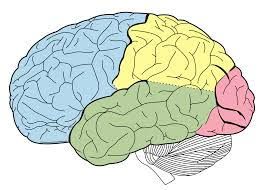

More than Frontal Lobes
Source/Author: Mike Murphy, Headmaster
October 23, 2015
Those of us who know and regularly observe adolescents are well aware that physiologists and psychologists attribute some risky teenage behaviors to the under-development of their frontal lobes. This past week I was reading an article from Elizabeth Kolbert in The New York Times and came across the following quote:
Temple University psychologist Laurence Steinberg has a different explanation for adolescent behavior: the brain’s nucleus accumbens – the pleasure center – reaches its maximum size and sensitivity during the teen years. In addition, as puberty arrives, kids’ brains sprout more dopamine receptors, making them more sensitive to enjoyment.
According to Steinberg, “Nothing – whether it’s being with your friends, having sex, licking an ice-cream cone, zipping along in a convertible on a warm summer evening, hearing your favorite music – will ever feel as good as it did when you were a teenager.” This, he believes, is why adolescents do so many crazy things and why the mortality rate of 15-19-year-olds (mostly from accidents) is nearly twice that of children 1-4 and three times that of kids 5-14.
“The notion that adolescents take risks because they don’t know any better is ludicrous,” says Steinberg. Rather, it’s that the potential psychic and physical rewards are much, much greater. Adolescent risk-taking is also more prevalent when there are other teens around. A teen driving a car with peers is four times more likely to get in an accident as when driving alone. And, Steinberg adds, “the recklessness-enhancing effect of being around peers is strongest when adolescents actually know there is a high probability of something bad happening.”
According to Steinberg, “Nothing – whether it’s being with your friends, having sex, licking an ice-cream cone, zipping along in a convertible on a warm summer evening, hearing your favorite music – will ever feel as good as it did when you were a teenager.” This, he believes, is why adolescents do so many crazy things and why the mortality rate of 15-19-year-olds (mostly from accidents) is nearly twice that of children 1-4 and three times that of kids 5-14.
“The notion that adolescents take risks because they don’t know any better is ludicrous,” says Steinberg. Rather, it’s that the potential psychic and physical rewards are much, much greater. Adolescent risk-taking is also more prevalent when there are other teens around. A teen driving a car with peers is four times more likely to get in an accident as when driving alone. And, Steinberg adds, “the recklessness-enhancing effect of being around peers is strongest when adolescents actually know there is a high probability of something bad happening.”
I think Steinberg is on to something. If seven-year-old children are developmentally able to determine right from wrong, why excuse teens for honor violations? The frontal lobe of the seven-year-old is not more developed than the brain of a 16-year-old. In short, I think our expectations for good behavior need to be sky high for people of all ages. I also think our ability to be compassionate and forgiving is important, but that does not mean we need to lower standards for appropriate behavior.
But what are parents and teachers suppose to do with information we learn about adolescent brain development? It appears to me that the famous WWII quote from Winston Churchill provides some guidance, “Never, Never, Never Give Up!”
Whether we are supporting our children because their brains are not fully developed or because their pleasure receptors are on overdrive, we have a responsibility to guide, support, expect, inspect and love them. Having watched three of my own sons and thousands of other parents with sons and daughters navigate the teen years gives me both hope and confidence that the diligent and loving efforts of parents can help our emerging adults become the independent, good citizens we dream for them to be.
Keep on the Case and Cheers!
Mike
Keep on the Case and Cheers!
Mike
























